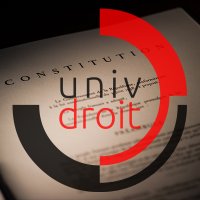
Deborah Boucoyannis
@dboucoyannis
Political scientist. Constitutionalism-"Kings as Judges" t.ly/3p2k & t.ly/ArDp-; Liberalism/Adam Smith t.ly/o1DU, t.ly/BCuw, t.ly/7be6; Greek Crisis t.ly/oJB0
ID: 2360476574
https://dboucoyannis.weebly.com/ 25-02-2014 04:10:55
1,1K Tweet
511 Followers
360 Following

“Anti-populism helps turning social democrats into mainstreamists (defenders of the status quo ex ante), instead of encouraging them to do their job & offer an alternative to neoliberalism and the centre-right.” Great new article by László Andor ips-journal.eu/regions/europe…

Join us October 22nd for a discussion of Deborah Boucoyannis's new book "Kings as Judges" with Amel Ahmed and Sebastian Mazzuca, moderated by Harris Mylonas More info and RSVP: conta.cc/3BlC7JM


Truly path-breaking new research on European state formation. A couple of weeks ago, at JHU we hosted a superlative presentation by @AnnaGBusse on medieval/papal sources. In couple of weeks, we'll discuss Deborah Boucoyannis's immense book on the judicial origins of representation.

📢Ever wondered why the Iberian system of representative assemblies wasn't exported to Latin America in the early modern period? Checkout the latest blog from the History of Parliamentary Cultures Series on our website Parliamentary Culture, 1500-1700 History Of Parliament 👇👇👇

#ICYMI, we're pleased to be involved in Oxford Centre for Intellectual History's new blog series, exploring Europe's early modern parliamentary culture, 1500-1700. But what exactly is this parliamentary culture? Find out more in the first blog, below: ow.ly/NAfK50GlydB

It is again with great delight that we announce our latest blog post, by political scientist Deborah Boucoyannis Deborah Boucoyannis History Of Parliament Oxford Centre for Intellectual History intellectualhistory.web.ox.ac.uk/article/power-…

NEW BLOG from Parliamentary Culture, 1500-1700 History Of Parliament Power over the most Powerful: The Paradox of Parliamentarism Deborah Boucoyannis "If we are to properly understand what differentiated the European experience, we need to move beyond the concepts of consent and rights" intellectualhistory.web.ox.ac.uk/article/power-…

Join us later today for a discussion of Deborah Boucoyannis's new book "Kings as Judges: Power, Justice, and the Origins of Parliaments" with Amel Ahmed and Sebastian Mazzuca

Thank you to Amel Ahmed for *incredibly* generous and insightful comments. Made it the book launch one hopes for! So looking forward to your next award-winning book!

And thank you Sebastian Mazzuca for equally *amazing* comments--all the more coming from the person who has "delivered what Weber never did--an empirically convincing theory of state formation." So grateful!

And last but not least, thank you to Harris Mylonas for setting up this wonderful opportunity to present my work!!!

Kings as Judges: Power, Justice, and the Origins of Parliaments by Deborah Boucoyannis now available from Cambridge University Press - Academic bit.ly/3nyVIjR

Thank you Laia Balcells! I could not have made the argument without the work of Catalan historians. Or historians in general! I hope they will find the comparative framework useful in showing up the precocity of the Catalan case.

Best academic book I read this year! Continual thinking about its implications for #Asia. Congrats Deborah Boucoyannis

Well worth a re-read on this fine Monday morning: Deborah Boucoyannis' blogpost on the pre-1500 origins of (divergent paths to) European parliamentarism Deborah Boucoyannis Oxford Centre for Intellectual History History Of Parliament Oxford History Read it here ⬇️ intellectualhistory.web.ox.ac.uk/article/power-…

Deborah Boucoyannis another great endorsement! this book "slays" just about every myth in comparative politics in one fell swoop w/ potent history & theory to explain the relationship between state capacity and democracy (what it is and what it isn't) from early modern to today

Deborah Boucoyannis (I use this book every day while writing and revising my dissertation) (I wish I could quote sections of it at length) (I am looking forward to sharing the chapter inspired by her work very soon)

[Parution] Kings as Judges. Power, Justice, and the Origins of Parliaments. Deborah Boucoyannis. Cambridge University Press Deborah Boucoyannis univ-droit.fr/recherche/actu…
![Droit Constitutionnel (@univdt_constit) on Twitter photo [Parution] Kings as Judges. Power, Justice, and the Origins of Parliaments. Deborah Boucoyannis. <a href="/CambridgeUP/">Cambridge University Press</a> <a href="/DBoucoyannis/">Deborah Boucoyannis</a> univ-droit.fr/recherche/actu… [Parution] Kings as Judges. Power, Justice, and the Origins of Parliaments. Deborah Boucoyannis. <a href="/CambridgeUP/">Cambridge University Press</a> <a href="/DBoucoyannis/">Deborah Boucoyannis</a> univ-droit.fr/recherche/actu…](https://pbs.twimg.com/media/FbaWpHfX0AM3R_h.jpg)

The honor of great company! Thank you Gerardo L. Munck
